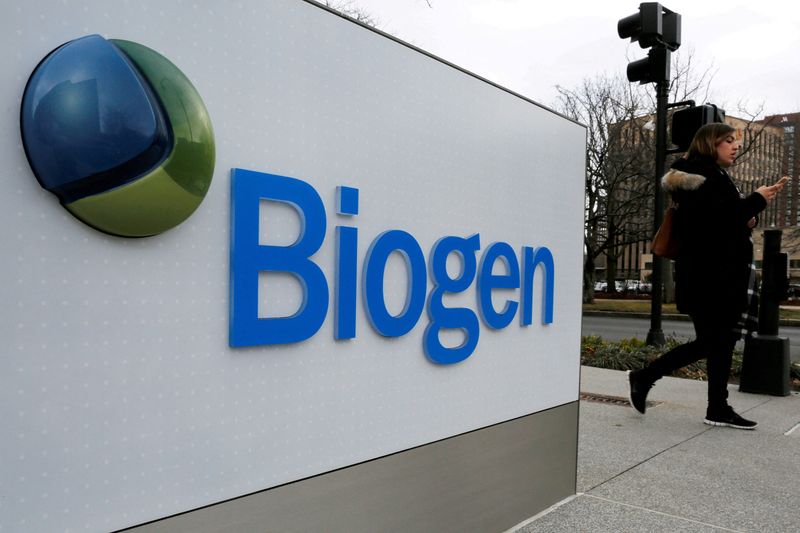Investing.com’s stocks of the week
(Reuters) - The U.S. Food and Drug Administration on Friday approved Eisai Co (OTC:ESALY) Ltd and Biogen Inc (NASDAQ:BIIB)'s Alzheimer's drug lecanemab for the treatment of early forms of the fatal, brain-wasting disease.
Like their earlier Alzheimer's drug Aduhelm, lecanemab, to be sold under the brand name Leqembi, belongs to a class of treatments that aim to slow disease progression by removing sticky clumps of the toxic protein beta amyloid from the brain.
Here's what we know about access to the drug so far:
PATIENT POPULATION
Leqembi was approved for patients with Alzheimer's disease, and is recommended for use in people with mild cognitive impairment or early Alzheimer's - the same population in which the drug was tested.
To qualify for treatment, patients will need to have a special diagnostic test - either a PET scan of the brain or spinal tap - to confirm the presence of amyloid in the brain.
MEDICARE COVERAGE
The companies said the drug would be available to patients during or before the week of Jan. 23. However, most patients will have to pay out of pocket for the drug, which costs $26,500 a year, as insurance coverage will be limited.
The U.S. Centers for Medicare & Medicaid Services (CMS) said Leqembi falls under its current policy severely limiting coverage of amyloid-lowering drugs to people enrolled in an approved clinical trial if the drug has gone through the FDA's accelerated approval process.
CMS, which runs the national Medicare healthcare plan for those age 65 and older, said in a statement it is currently reviewing all available data and "may reconsider" its coverage decision. The agency added that it would provide broader coverage if the drug receives standard FDA approval. The companies said they intend to apply for full approval shortly.
"Given the data behind lecanemab, there is a case that Eisai can make for CMS reimbursement for the drug," said BMO analyst Evan Seigerman, adding that the drugmaker will need to negotiate with the agency.
SAFETY
The drug comes with a requirement that patients undergo four MRI scans over the course of 14 weeks to check for signs of Amyloid Related Imaging Abnormalities or “ARIA," a type of temporary brain swelling that is frequently seen with drugs that remove amyloid from the brain.
In some patients, this type of brain swelling has led to hemorrhages. Because of that, Leqembi's label urges doctors to warn patients of this risk, especially if patients are already taking blood thinners.
The label urges doctors to be especially careful in giving the clot-busting stroke treatment known as a tissue plasminogen activator, or t-PA, to patients taking Leqembi, saying it can increase the risk of bleeding in the brain.
Because of this risk, some physicians have said they would not recommend Leqembi for patients on blood thinners.
